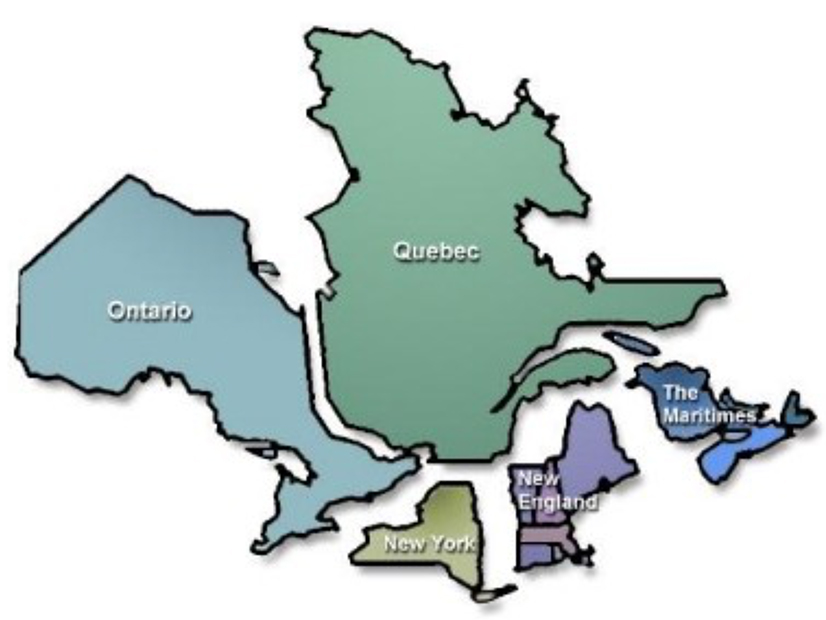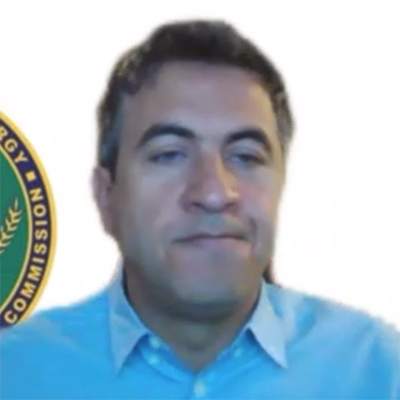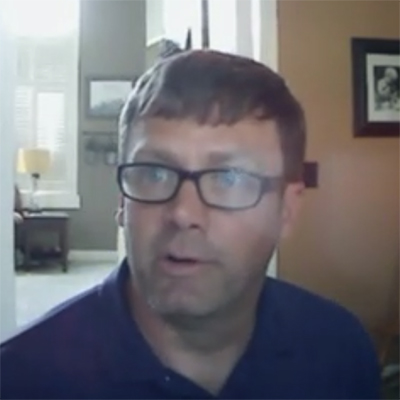
DER Guidance Document Approved
The Northeast Power Coordinating Council’s Regional Standards Committee on Wednesday approved a guidance document on integrating distributed energy resources in the bulk power system, identifying possible risks and strategies to mitigate them.
 Gerry Dunbar, NPCC | NPCC
Gerry Dunbar, NPCC | NPCC
The document incorporated substantial revisions suggested by stakeholders, including to sections on DER characteristics and capabilities, aggregation and interconnection standards, and an appendix for inverter-based resources, Gerry Dunbar, NPCC director of reliability standards and criteria, said at the committee’s meeting.
“The evolving document will see more changes as guidance is informed by ongoing DER and variable resource forums, particularly relating to electric vehicle charging and building electrification, topics that will eventually will have their own appendices in the guidance document,” Dunbar said.
FERC Update
Kal Ayoub, deputy director of FERC Division of Cyber Security, updated participants on commission activities since the last RSC meeting in February, including meetings of the Joint Federal-State Task Force on Electric Transmission.
The task force of FERC commissioners and 10 state regulators was created by Chairman Richard Glick in June to enable transmission expansion to improve resilience and connect new renewable energy resources (AD21-15).
 Kal Ayoub, FERC | NPCC
Kal Ayoub, FERC | NPCC
“The third meeting was held just last week and focused on examining barriers to efficient, expeditious and reliable interconnection of new resources through the FERC-jurisdictional interconnection process,” Ayoub said. (See FERC-State Task Force Considers Clustering, ‘Fast Track’ to Clear Queues.)
Ayoub also noted that the commission’s Jan. 20 Notice of Proposed Rulemaking to add internal network security monitoring (INSM) to NERC’s Critical Infrastructure Protection (CIP) reliability standards also sought comments on the usefulness or impracticality of implementing INSM to detect malicious activity, including any potential technical barriers and associated costs.
“We are currently reviewing 22 comments and of course next steps would eventually be a final rule,” Ayoub said.
Committee members also had questions about the commission’s April 21 NOPR to change transmission planning and cost allocation processes to help build out the grid. (See FERC Issues 1st Proposal out of Transmission Proceeding.)
Dan Kopin, a compliance analyst at Vermont Electric Power Co. (VELCO) and part of the System Planning Impacts from Distributed Energy Resources (SPIDER) Working Group at NERC, asked whether and how much Ayoub’s division is involved in the docket and whether new NERC standards could arise from the proceeding.
“Obviously cybersecurity is not involved yet … [and] we do get plugged into these rulemakings as they are issued, but of course transmission planning itself is in another office, but yes we are involved in all of these dockets,” Ayoub said. “Is it feasible that new NERC standards or reliability standards could potentially emerge from these NOPRs? Our understanding is no; … it’s a separate part of the development process.”
Regarding the transmission planning NOPR and the joint task force, “do you think there’s any synergy between the two, or are they coming at us on two separate tracks?” Dunbar said.
Ayoub said that was a very good question but tough to answer.
“The intent of the Joint Federal-State Task Force [is] … to encourage cooperation and communication between federal and state regulators on electric transmission-related issues,” Ayoub said. “When you look at what the joint task force is doing and what the commission’s NOPR on transmission planning is asking for, I think the answer is yes … there are of course some synergies between both.”
Cold Weather Standards
 Kenny Luebbert, Evergy | NPCC
Kenny Luebbert, Evergy | NPCC
Kenny Luebbert, director of operations support at Evergy, updated the RSC on evolving standards on extreme cold weather grid operations, preparedness and coordination.
The term “retrofit” was used informally by planners but did not make it into the standards.
“‘Retrofit’ was clarified to mean ‘implement freeze protection measures or modify existing freeze protection measures,’ so that’s what NERC or FERC and the report drafting team meant when they said ‘retrofit,’” Luebbert said. “It’s not anything more than that, so we wanted to make sure that ‘retrofit’ term was not used in the new standards. …
“For new builds, we understand that there may be technical, commercial or operational constraints that do not allow you to take corrective action. For instance, wind turbines in West Texas experienced freezing rain in the [February 2021 winter storm], and they froze on the blades, and the blades and the turbine shut down,” Luebbert said. “There are no existing technologies widely used in the industry that allow for de-icing of wind turbine blades; it doesn’t exist. There are conceptual things that exist, but nothing that’s available widely in the industry, so we need a method that they can take exception to.”
The Aug. 10-11 RSC meeting will be virtual.
